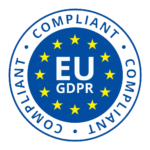In today’s increasingly digital and decentralised research landscape, one question is becoming more urgent: Who really owns clinical trial data?
As clinical trials evolve, often involving multiple sponsors, CROs, investigators, platforms, and even wearable devices, the lines of data ownership and control are becoming increasingly complex. Understanding how data is managed, accessed, and protected is essential for ensuring compliance, protecting patient rights, and maintaining transparency across all stakeholders.
At Xolomon, we believe that secure, well-governed digital platforms like eCRD and CTMS are essential for managing data ownership and access clearly and responsibly.
What is clinical trial data ownership?
At its core, data ownership refers to the legal rights and responsibilities over the data collected during a clinical trial. This includes everything from patient-reported outcomes (via ePRO), to site-collected data (via eCRD), to operational metrics (via CTMS).
Ownership often depends on:
- Sponsor agreements
- National and international regulations
- Contractual terms with CROs and sites
- Informed consent from patients
However, many stakeholders confuse data ownership with data control or access, which are related but not identical concepts.
Why it matters
Misunderstanding data ownership can lead to:
- Regulatory non-compliance (e.g. GDPR, HIPAA)
- Delays in trial close-out
- Legal disputes over secondary use
- Lack of transparency with patients and investigators
With digital platforms like Xolomon’s, it becomes easier to track who collected the data, when, how, and under which conditions. This level of auditability is key to maintaining ethical and legal integrity.
What sponsors need to know
Sponsors are typically the legal owners of trial data, but responsibility for data protection and compliance is shared across all parties.
To ensure clarity:
- Contracts should define data ownership and usage rights
- Informed consent forms must specify how data will be used
- All systems (eCRD, CTMS, ePRO) should have role-based access to ensure proper governance
Platforms like Xolomon support:
- Access logs and user permissions
- Secure storage with version control
- Clear documentation trails for audits and inspections
What about the patient?
In many regions, patients retain rights over their personal health data, even if the sponsor owns the study dataset.
That’s why tools like ePRO must:
- Provide transparency about data usage
- Include consent mechanisms for ongoing access or deletion
- Respect patients’ rights under laws like the GDPR
Xolomon’s platform is designed to keep patients informed and protected, while still enabling sponsors to manage operations efficiently.
Xolomon: making research accessible
Data is the backbone of any clinical trial. But ownership, access, and responsibility are not always as clear as they should be.
With the rise of decentralised and multi-stakeholder trials, it’s more important than ever to define who owns what and to manage it through a secure, transparent platform.
At Xolomon, our eCRD, CTMS and ePRO tools are built to support clear, compliant and ethical data management, because trust starts with transparency.



